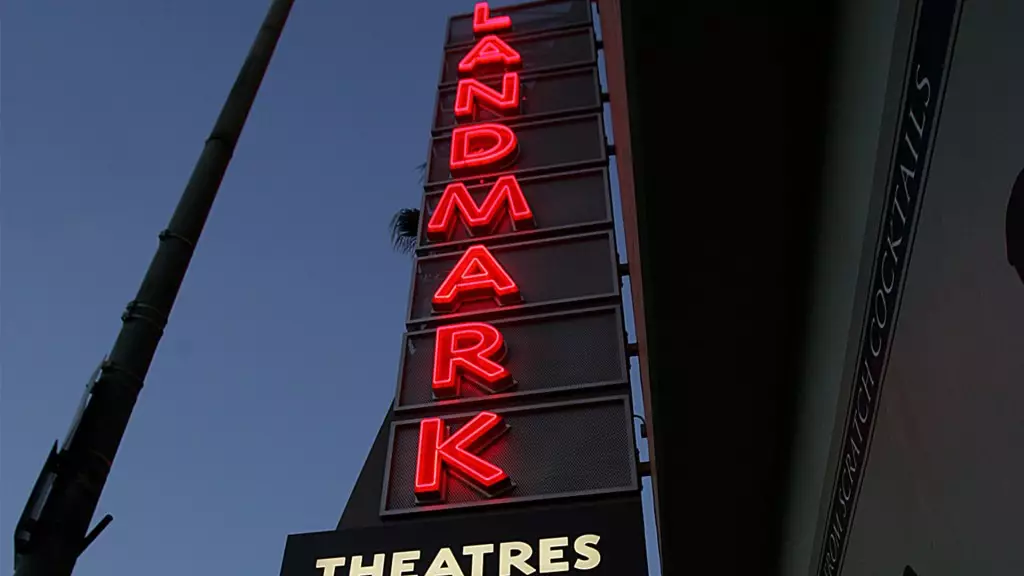The challenges facing Landmark Theatres exemplify a complex intersection of market forces that have contributed to its pronounced decline in value. Under the ownership of Charles Cohen, the prominent arthouse cinema chain has not only contended with the lasting repercussions of the COVID-19 pandemic but has also been thrust into protracted legal tussles exacerbated by high-interest rates and labor strikes within Hollywood. In essence, the combination of these factors has slashed the value of Landmark Theatres by hundreds of millions of dollars, raising pressing concerns about its sustainability in a shifting entertainment landscape.
In recent legal proceedings, particularly a deposition by Cohen disclosed as part of an ongoing dispute with lender Fortress Credit Corp., it has become clear that the ramifications of these challenges have drastically altered the financial landscape for Landmark. This development underscores a broader trend within the cinematic realm, where traditional moviegoing experiences are increasingly threatened by external economic pressures and changing consumer behaviors.
The legal situation surrounding Landmark is fraught with complications. A New York State Supreme Court judge ruled that Cohen defaulted on a considerable loan, setting in motion an impending auction of Landmark’s assets, which include several properties fortified by mortgages. This auction is critical, not just for paying off debts, but to determine the future viability of Landmark itself. Reports indicate that the auction could take place on November 8, unless the parties involved reach a mutually agreeable settlement before that deadline.
Interestingly, Cohen’s potential options to negotiate a settlement might reshape the narrative going forward. Despite the escalating tension between Cohen and Fortress Credit Corp., insiders suggest that a resolution is still within reach. Nevertheless, Fortress’ aggressive legal strategy aims to safeguard their financial interests, seeking court injunctions to prevent Cohen from removing or transferring personal assets during the proceedings. This highlights the intense scrutiny surrounding Cohen’s recent financial maneuvers, including significant asset transfers that could shield assets from creditors.
Amid the current crisis, the film industry has been rocked by labor strikes that saw significant disruptions in production schedules, which have, in turn, led to a dearth of new content for theaters. Cohen himself acknowledged in the deposition that the strikes, coupled with rising interest rates, hampered Landmark’s ability to generate sufficient revenue. With audiences hesitant to return to cinemas, it seems that many arthouse theaters are struggling to redefine their role in a rapidly evolving ecosystem.
Specifically, Cohen also reported that Landmark has been experiencing substantial financial deficits, with claimed losses exceeding $14 million. This stark figure is a reflection, not only of the adverse external economic conditions but also of the broader shift in how viewers consume entertainment. The specter of a post-pandemic world blended with labor unrest has compounded existing issues, driving home the fragility of business models reliant on traditional theatrical exhibitions.
As Cinematic institutions like Landmark navigate these tumultuous waters, the future remains uncertain. The closure of key locations, such as the flagship Westside LA theater, has rattled the arthouse sector, highlighting the precarious existence of smaller chains in the current market. Landmark is not alone in facing these existential threats; competitors like Alamo Drafthouse are also beginning to redefine their strategies by merging art-centric films with mainstream releases. The shift could be pivotal as theaters search for incisive ways to attract younger audiences and leverage creative marketing tactics.
Going forward, Landmark’s path may involve reconsidering its operational model in light of a world where streaming services dominate and cinematic experiences are increasingly enhanced by technological adaptations. The industry’s vitality may hinge on its ability to attract a new generation of moviegoers, utilizing a combination of upgraded facilities and redefined theatrical offerings to enrich the viewing experience.
Landmark Theatres stands at a critical juncture, wrestling not only with financial instability but also with the challenges that have emerged in a post-COVID cinematic landscape. The ongoing legal battles, coupled with changing audience preferences and external economic pressures, create both urgency and opportunity. This situation begs for innovative solutions that resonate with contemporary audience sensibilities while aiming for the revival of the beloved arthouse experience. As its fate hangs in precarious balance, only time will tell whether Landmark can adjust, evolve, and ultimately thrive amidst industry transformation.

